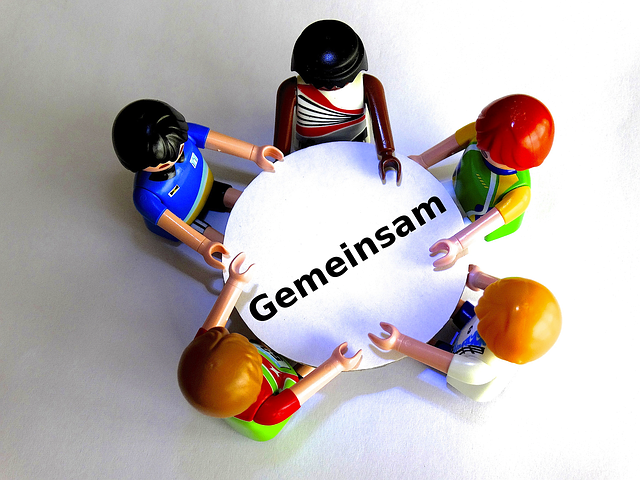Family Psychology Near Me: Unlocking the Dynamics of Modern Families
Introduction
In today’s diverse and ever-evolving social landscape, understanding family dynamics is more crucial than ever. “Family Psychology Near Me” is a burgeoning field that delves into the intricate relationships and behaviors within families, offering valuable insights to support their overall well-being. This comprehensive article aims to explore the multifaceted world of family psychology in your local context, shedding light on its significance, global reach, and the impact it has on society as a whole. By the end, readers will grasp the complex interplay between family structures, psychological practices, and community engagement.
Understanding Family Psychology Near Me: Unraveling the Basics
Definition:
Family psychology, at its core, is the scientific study of families and their interactions. It examines the emotional, behavioral, and social aspects of family life, focusing on how family dynamics influence individual development and overall mental health. “Family Psychology Near Me” specifically refers to the application of these psychological principles and practices within a local community, considering cultural, socio-economic, and geographical factors that shape family experiences.
Key Components:
- Family Systems Theory: This theory views families as interconnected systems where each member’s behavior affects the whole. It emphasizes the roles, relationships, and patterns within families, helping professionals understand complex dynamics.
- Intergenerational Transmission: Exploring how beliefs, behaviors, and experiences are passed down through generations, this aspect provides insights into potential family patterns and challenges.
- Cultural Sensitivity: Recognizing that families operate within diverse cultural contexts, psychologists must consider cultural norms, values, and traditions to offer tailored support.
- Community Engagement: Involving the local community in mental health initiatives strengthens support networks and promotes a collective understanding of family psychology.
Historical Context:
The field of family psychology has evolved over centuries, with roots tracing back to ancient philosophical inquiries into human behavior and social dynamics. However, it gained formal recognition as a distinct discipline in the 20th century. Early pioneers like John Bowlby’s attachment theory laid the foundation for understanding the critical role of early relationships in shaping individual development. Over time, family therapy practices emerged, emphasizing family systems and collaborative problem-solving. Today, with increasing awareness of mental health issues and diverse family structures, family psychology has become an essential component of community wellness programs.
Global Impact and Trends: A World of Diverse Families
The influence of “Family Psychology Near Me” is not confined to a single region; it resonates globally, adapting to the unique cultural and socio-economic landscapes of different countries.
International Reach:
- North America: In the United States and Canada, family therapy has been widely adopted, with many communities offering specialized services. The American Association for Marriage and Family Therapy (AAMFT) is a prominent organization that supports local practitioners globally.
- Europe: Countries like Germany, the UK, and France have well-established family psychology practices, with extensive research contributing to the field’s growth. European Union initiatives often focus on cross-cultural understanding and family support systems.
- Asia: With diverse cultural contexts, Asia presents a unique landscape. Countries like Japan, South Korea, and India are witnessing an increasing demand for family therapy services, reflecting changing societal norms and a growing awareness of mental health.
- Emerging Markets: In regions such as Latin America and parts of Africa, family psychology is gaining traction, often adapting to address specific cultural challenges and limited resources.
Key Global Trends:
- Diverse Family Structures: The concept of the ‘traditional’ family is evolving, with rising acceptance of single-parent families, same-sex partnerships, blended families, and multi-generational households. This shift presents new opportunities for psychologists to provide tailored support.
- Digital Therapy: Online counseling platforms and virtual reality interventions are gaining popularity, making mental health services more accessible, especially in remote areas.
- Cultural Competence: There is a growing emphasis on culturally sensitive practices, ensuring that family psychology services are inclusive and relevant to diverse communities.
- Community-Based Initiatives: Many countries are adopting community-based approaches, integrating family psychology into local schools, healthcare systems, and community centers to promote early intervention and prevention.
Economic Considerations: A Growing Market with Social Impact
The economic landscape of “Family Psychology Near Me” is dynamic, reflecting both the demand for services and the resources allocated to mental health initiatives.
Market Dynamics:
- Service Demand: With increasing awareness of mental health issues and a growing aging population, the need for family therapy services is rising globally. This trend is particularly pronounced in regions with expanding middle classes, as individuals seek support for work-life balance and interpersonal relationships.
- Competitive Landscape: In urban areas, the market for psychological services can be competitive, with various providers offering specialized family therapy, coaching, and counseling.
- Pricing Strategies: Fees for family psychology services vary widely based on location, provider expertise, and treatment duration. Many practitioners offer sliding scale fees to ensure accessibility.
Investment Patterns:
- Government Funding: Public healthcare systems in many countries allocate funds to mental health services, including family therapy. This support is crucial for ensuring accessibility and affordability.
- Private Sector Involvement: Private insurance companies often cover mental health treatments, driving investment in specialized clinics and online therapy platforms.
- Charitable Organizations: Non-profit organizations play a significant role, providing funding for community-based initiatives, research, and education in family psychology.
Economic Impact and Benefits:
- Job Creation: The field of family psychology contributes to employment opportunities, from clinical practitioners to administrative staff and researchers.
- Community Well-being: Effective interventions can lead to improved family relationships, reduced conflict, and enhanced overall mental health, positively impacting communities.
- Cost Savings: Preventative measures and early interventions can reduce the long-term economic burden of untreated mental health issues on healthcare systems.
Technological Advancements: Digital Tools for Family Therapy
Technology has emerged as a powerful enabler, revolutionizing how “Family Psychology Near Me” is delivered and experienced.
Online Therapy Platforms:
The rise of digital therapy platforms allows individuals and families to access counseling from the comfort of their homes. These platforms use secure video conferencing, chat, and messaging to facilitate therapeutic conversations. Benefits include increased accessibility, reduced barriers to care, and convenience for clients.
Virtual Reality (VR) Therapy:
VR technology offers immersive experiences for exposure therapy and cognitive behavioral treatments. It can simulate real-life scenarios, helping individuals confront fears or work through traumatic memories in a safe virtual environment. Research suggests that VR therapy is effective for conditions like anxiety disorders and PTSD.
Mobile Applications:
Family-focused mobile apps provide educational resources, mood tracking tools, and communication platforms. These apps empower families to engage in self-care practices, improve communication, and monitor progress between therapy sessions.
Data Analytics:
Advanced data analytics enables psychologists to gain insights from client records, identify trends, and personalize treatment plans. This approach enhances clinical decision-making and improves treatment outcomes.
Future Potential:
The integration of artificial intelligence (AI) holds promise for personalized therapy recommendations, automated assessment tools, and virtual coaching. AI-driven systems could revolutionize access to mental health services, especially in underserved areas. Additionally, the development of more sophisticated VR technologies will further enhance therapeutic interventions.
Policy and Regulation: Navigating the Legal Landscape
The field of “Family Psychology Near Me” operates within a complex web of policies and regulations that vary across jurisdictions, shaping its practice and accessibility.
Key Policies:
- Licensing and Certification: Most countries require family therapists to be licensed or certified by a recognized professional body. These bodies set standards for education, training, and ethical practice.
- Privacy and Confidentiality: Strict data protection laws, such as the Health Insurance Portability and Accountability Act (HIPAA) in the US, ensure client privacy and confidentiality during therapy sessions.
- Insurance Coverage: Policies regarding mental health coverage influence accessibility. Many countries have mandatory insurance plans that include psychological services, while others rely on private insurance or out-of-pocket expenses.
Regulatory Frameworks:
- Professional Associations: Organizations like the American Psychological Association (APA) and the British Psychological Society (BPS) set ethical guidelines and promote research in their respective regions.
- Government Guidelines: Health ministries and mental health agencies provide national guidelines for family therapy practice, ensuring quality and consistency of care.
- Cultural Sensitivity Regulations: Some regions have specific policies promoting culturally sensitive practices to address the diverse needs of minority groups.
Impact on Practice:
- Standardization: Licensing and certification ensure a minimum level of competence among practitioners, providing assurance to clients.
- Accessibility: Insurance coverage and government initiatives play a crucial role in making family therapy services more accessible to those who need them.
- Ethical Considerations: Regulatory bodies address ethical dilemmas, ensuring therapists maintain confidentiality, respect cultural boundaries, and prioritize client welfare.
Challenges and Criticisms: Overcoming Barriers
Despite its significance, “Family Psychology Near Me” faces several challenges and criticisms that require thoughtful strategies for resolution.
Main Challenges:
- Stigma and Misconceptions: Mental health stigma often deters individuals and families from seeking professional help. Education and awareness campaigns are essential to dispel myths and encourage open dialogue.
- Accessibility and Affordability: Barriers to access include limited resources, geographic distance, and high costs. Expanding community-based services and insurance coverage can address these issues.
- Cultural Sensitivity: Providing culturally competent care is challenging, especially in diverse communities. Continuous training and the involvement of local cultural experts are necessary to ensure sensitivity.
- Training and Education: Ensuring qualified practitioners is a concern, requiring investment in education and ongoing professional development.
Criticisms and Solutions:
- Lack of Cultural Representation: Critics argue that mainstream family therapy practices may not resonate with all cultures. Customizing approaches and training cultural competency can mitigate this.
- Over-reliance on Western Models: Some believe that traditional western therapeutic models might not address the unique needs of non-western families. Adapting and integrating diverse cultural healing practices is a proposed solution.
- Insufficient Research: There is a call for more research to support evidence-based practice, especially in emerging markets. Funding research initiatives can enhance the field’s growth.
Case Studies: Success Stories in Action
Real-world applications of “Family Psychology Near Me” offer valuable insights into effective practices and outcomes.
Case Study 1: Community-Based Family Intervention (CBI) – USA
In a low-income urban area, a community organization launched a CBI aimed at improving family relationships and youth well-being. The program involved weekly group sessions focused on communication skills, conflict resolution, and parenting techniques. Results showed significant improvements in family dynamics, reduced youth delinquency, and increased academic performance. This success led to the integration of CBI into local schools and community centers.
Case Study 2: Digital Therapy for Adolescents – UK
A non-profit organization in the UK developed an online therapy platform tailored for adolescents struggling with mental health issues. The platform offered a combination of guided self-help modules and one-on-one video therapy sessions. Initial studies indicated high user satisfaction, improved mood, and reduced anxiety symptoms among participants. This model has since been adopted by several schools and healthcare providers.
Case Study 3: Intergenerational Family Programs – Canada
A Canadian community center implemented an intergenerational family program that brought together grandparents, parents, and children for shared activities. The program aimed to strengthen family bonds and provide support for working parents. Feedback from participants highlighted improved communication, enhanced family connections, and increased self-esteem among all age groups.
Future Prospects: Emerging Trends and Strategic Considerations
As “Family Psychology Near Me” continues to evolve, several emerging trends and strategic considerations shape its future trajectory.
Potential Growth Areas:
- Telehealth Expansion: With ongoing technological advancements, telehealth is expected to grow, making family therapy more accessible globally, especially in rural or underserved areas.
- Cultural Diversity Training: As the world becomes increasingly multicultural, practitioners will need advanced training in cultural sensitivity to provide effective services to diverse families.
- Preventative Measures: There is a growing emphasis on preventative interventions, focusing on early childhood development and family support systems to mitigate mental health issues later in life.
- Data-Driven Practice: Utilizing data analytics to personalize therapy plans and measure outcomes will become more prevalent, enhancing the effectiveness of interventions.
Emerging Trends:
- Transcultural Therapy: Integrating cultural healing practices from various traditions into therapeutic approaches is gaining traction, offering diverse families culturally relevant support.
- Family-Focused Systemic Therapy: This approach considers the family as a whole, addressing intergenerational patterns and promoting systemic change.
- Mindfulness-Based Interventions: Mindfulness practices are being integrated into therapy, helping families develop emotional regulation skills and enhance overall well-being.
Strategic Considerations:
- Community Engagement: Building strong community partnerships is crucial for achieving sustainable growth. Collaborating with schools, healthcare providers, and local organizations can expand reach and ensure a holistic approach to family psychology.
- Continuous Education: Practitioners must stay updated with the latest research and therapeutic techniques through ongoing training and professional development programs.
- Diversity and Inclusion: Attracting a diverse range of practitioners and ensuring inclusive practices will contribute to culturally sensitive services, catering to the needs of all families.
- Policy Advocacy: Mental health organizations should actively engage in policy discussions to shape supportive legislation and secure funding for family psychology initiatives.
Conclusion: Weaving Together Family, Psychology, and Community
“Family Psychology Near Me” is a dynamic field that intertwines the complexities of family dynamics with evidence-based psychological practices, all while being influenced by cultural, social, and economic factors. Its global impact is evident in the diverse applications and case studies presented, showcasing its ability to adapt and provide meaningful support.
As we look ahead, the future of family psychology lies in its adaptability, innovation, and community-focused approach. By embracing technological advancements, addressing challenges with strategic solutions, and prioritizing cultural sensitivity, this field can continue to unlock the potential of families worldwide. Ultimately, by understanding and supporting the diverse needs of families, “Family Psychology Near Me” contributes to building stronger, healthier communities.
FAQ Section: Answering Common Queries
Q: What is family psychology, and how does it differ from individual therapy?
A: Family psychology is a branch of mental health that focuses on understanding and improving relationships and dynamics within families. It involves therapeutic interventions aimed at enhancing communication, resolving conflicts, and promoting overall well-being among family members. Unlike individual therapy, which addresses personal issues, family therapy considers the systemic impact of an individual’s behavior on their family unit.
Q: How can I find a qualified family therapist near me?
A: You can start by asking for referrals from your primary care physician or local mental health organizations. Many countries have online directories listing licensed therapists, which you can search based on location and specialization. Reputable therapy platforms and insurance provider websites often provide resources for finding qualified professionals.
Q: Are family therapy sessions confidential?
A: Yes, confidentiality is a fundamental aspect of therapy. Therapists are legally bound to maintain the privacy of their clients’ information. However, there may be exceptions in cases where the therapist believes a client or family member is at risk of harm or when required by law. It’s essential to discuss these matters with your therapist during the initial consultation.
Q: Can family therapy help with any age group?
A: Family therapy is beneficial for families across all age ranges, from children and adolescents to adults and older adults. The approach can be adapted to address specific needs, such as parenting support, teen behavior issues, or intergenerational conflicts. Therapists often use age-appropriate techniques to engage family members effectively.
Q: How do I know if family therapy is right for my family?
A: Family therapy may be a good option if you’re experiencing challenges in communication, resolving conflicts, or managing behavioral issues within your family. It can help strengthen relationships, improve problem-solving skills, and create healthier dynamics. If you have concerns about your family’s mental health or well-being, consulting with a therapist can provide guidance and help determine the best course of action.
Family psychology is a specialized field focusing on household dynamics and their impact on individual emotional health. By understanding unique family systems, counsellors guide families through challenges like conflict resolution and life tran…….
Understanding family dynamics is crucial for emotional well-being, especially when seeking professional help. This text guides families through choosing a family psychologist near me, highlighting benefits of therapy, tips for selecting a practi…….
Family dynamics are complex and ever-changing, made so by the unique interactions among its members. Psychology is essential for understanding these complexities, offering insights into communication, conflict resolution, and emotional connectio…….
In Menai, New South Wales, family psychology is key to addressing diverse household challenges. Therapists utilize holistic approaches, such as systemic therapy and CBT, to strengthen familial bonds, improve communication, and create supportive…….
Family psychologists specialize in understanding and strengthening complex family dynamics through empathetic listening and evidence-based methods. They facilitate open communication, resolve conflicts, and foster emotional connections within di…….
Family psychology interventions require an in-depth understanding of complex family dynamics, influenced by individual histories and experiences, to effectively address issues such as communication, conflict resolution, and emotional well-being……..
Family psychology counselling addresses unique family challenges by exploring relationship dynamics, hidden patterns, and intergenerational influences. Therapists empower families to improve communication, resolve conflicts, and develop effectiv…….
Family psychology is a specialized field that focuses on understanding and enhancing the unique dynamics within every home. By recognizing individual family values, traditions, and communication styles, professionals guide families through chall…….
Evolving Minds Counselling recognizes that every family is unique and offers tailored support to navigate complexities, build empathy, and strengthen bonds. Through skilled counselling, they help families uncover strengths, address weaknesses, a…….
Family psychology services near you provide specialized support for various family challenges, from conflict resolution to mental health management. These professionals create safe spaces for open communication and emotional exploration using ev…….
Family psychology offers crucial support in improving familial relationships by addressing dynamics, communication, and behaviors using evidence-based strategies. Sessions create a safe space for open dialogue and problem-solving, encouraging ac…….
Evolving Minds Counselling provides tailored family psychology support to help families navigate complex issues and strengthen bonds. Their expert clinicians assess unique dynamics, communication styles, and conflict resolution strategies, promo…….
Evolving Minds Counselling specializes in improving family dynamics by addressing underlying relationship issues and communication barriers. Using evidence-based methods like cognitive-behavioural therapy (CBT) and mindfulness, they guide famili…….
Family psychology experts analyze and support family systems using specialized knowledge and evidence-based approaches. Through empathetic assessment and engagement, they help families navigate challenges, improve communication, and strengthen b…….
Understanding family dynamics is key to unity and support across generations in today's fast-paced world. Seeking help from local family psychology services bridges generational gaps, providing safe spaces for open communication. Qualified…….
Family psychology sessions effectively unravel complex household dynamics, which significantly influence individual well-being. Therapists identify conflict roots and communication obstacles by recognizing patterns like passive-aggressive behavi…….
Family psychology at Evolving Minds Counselling specializes in understanding and strengthening family dynamics. Our expert therapists offer evidence-based support for healthier relationships, conflict resolution, communication improvement, and f…….
Understanding family dynamics is key to fostering harmonious environments. Family psychology near me offers specialized support tailored to parents and caregivers, addressing unique relationships, communication, and challenges within evolving fa…….
Evolving Minds Counselling offers expert family psychology services tailored to unique needs, located conveniently near me. Their therapists use evidence-based practices in a non-judgmental environment to improve communication, resolve conflicts…….
Evolving Minds Counselling provides expert family psychology services to help unique families strengthen bonds, resolve conflicts, and improve dynamics through tailored strategies, empathetic listening, and evidence-based techniques. Their profe…….



















